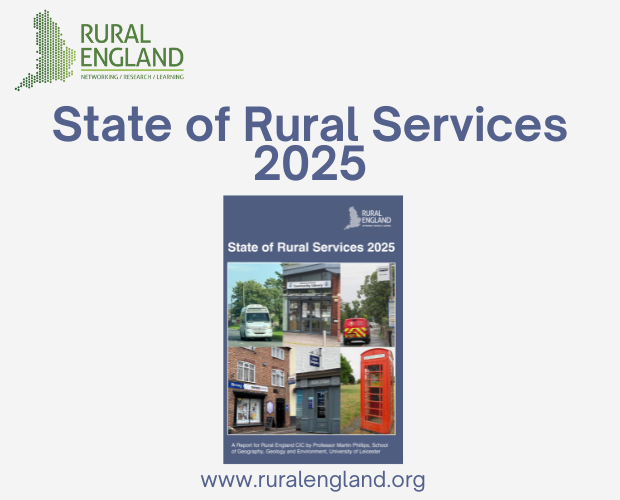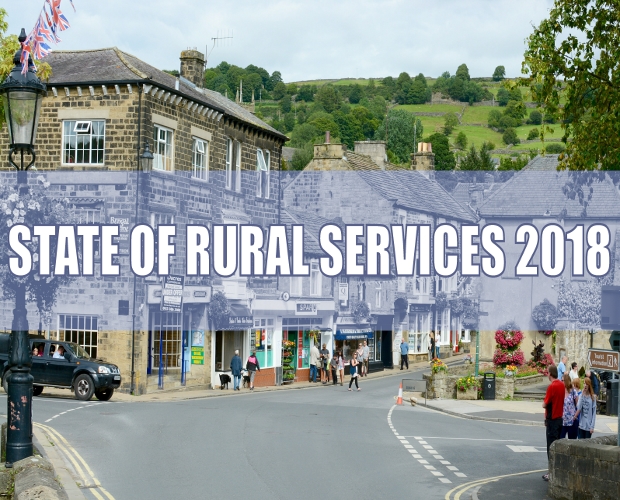T: 01822 851370 E: [email protected]
Rural England CIC has today published its latest State of Rural Services 2025 report, providing an updated and detailed picture of how people living in rural areas across England access and experience essential local services. Drawing on national datasets and...
Basic mobile calls are not possible across main networks in a third of rural homes. The report also finds that rural residents are losing out as bus services are scrapped. Residents of rural England are being cut off from building...
The Telegraph and Mail both reported on Rural England’s biannual State of Rural Services report, which fund that a third of rural households are unable to make a basic mobile call across the main network, and that more than half...
Rural communities are suffering due to the patchy provision of key services, a major report has warned. Transport, education, health and welfare services that act as a lifeline to more than 9m rural people are patchy – and many are...
State of Rural Public Services Report 2016 A report by the Rural England CIC in conjunction with the Rural Services Network. Published January 2017 State of Rural Public Services Report 2013 A report by the...
NEWSLETTER
Sign up to receive all our latest news and updates.
HOT TOPICS
Amid reduced public spending, fair resource allocation across regions is crucial. Despite a population larger than Greater London, rural areas receive significantly less funding for essential services, even though delivering these services in rural areas is more expensive.
Economic growth is widely acknowledged as essential for national wealth and prosperity and is a priority for political parties. Rural economies, employing millions and home to a higher proportion of small businesses, have potential for growth if barriers are removed.
Rural residents face distinct healthcare challenges, including limited access to transport, longer distances to medical facilities, an aging demographic, housing inadequacies, digital connectivity gaps, and difficulties recruiting health and care workers.
Rural communities are grappling with a severe affordable housing crisis, marked by high house prices, a lack of affordable housing, elevated living costs, and lower incomes, threatening their sustainability and vitality.
Transport is vital for the quality of life and economic health of rural areas, yet it faces challenges such as infrequent public bus services and less Government funding compared to urban regions.
Rural areas, encompassing a substantial portion of England's population and land, play a pivotal role in combating climate change and achieving the net zero target.
In an increasingly digital world, the lack of robust digital infrastructure in rural areas severely limits access to crucial services and stifles economic growth.
A future-focused vision for rural communities involves not just building the right homes in the right places but also ensuring thriving, sustainable communities.
SIGN UP TO OUR NEWSLETTER
Sign up to our newsletter to receive all the latest news and updates.








